Juli McLoone
Posts tagged with Children's Literature
Showing 11 - 20 of 21 items
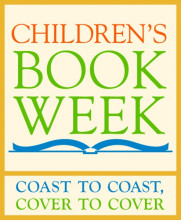
The audience for children’s literature goes far beyond ages 2-12. The words and images of these books linger in our minds long after we’ve outgrown the suggested age ranges. Below are a few favorite children’s books from the staff of the Special Collections Library, featuring titles present in our Children’s Literature Collection. Celebrate Children’s Book Week with one of these suggestions, or share your own best-loved books in the comments!
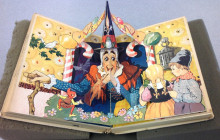
If you go trick-or-treating this weekend, watch out for witches in candy-filled houses! As Hansel and Gretel learn in this fairy tale, you may get more tricks than treats.
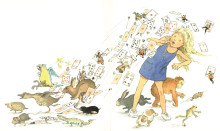
Join us to celebrate 150 years of artistic exploration of Lewis Carroll's Wonderland on Monday, September 21, 4:00-5:30 p.m in Hatcher Gallery. Learn more about the artistic, textual, and cultural history of Alice illustration from Arnold Hirshon, avid Carroll collector and Associate Provost and University Librarian at Case Western Reserve University.
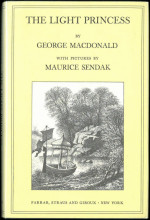
"The Light Princess" by Victorian writer George MacDonald plays on the many meanings of lightness and weightiness. A parody of Sleeping Beauty that delights in puns and word play, this 19th century literary fairy tale also has a more serious side as a reflection on the role of sorrow and grief in emotional maturity.
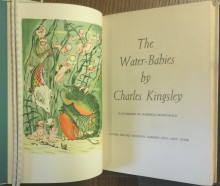
Although largely forgotten today,The Water-Babies was once one of the most popular Victorian literary fairy tales. Charles Kingsley's imaginative tour de force leaps from realistic adventure, to fantastical exploration of aquatic biology, to an imaginary voyage in the tradition of Gulliver’s Travels.
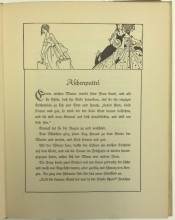
Our last Fairy Tale Friday recounted Hans Christian Andersen’s The Red Shoes - a story about a girl whose vanity led to the loss of her feet and, ultimately, her life. Footwear features prominently again in today’s fairy tale. However, unlike Karen’s cursed dancing shoes, Aschenputtel finds that her golden slippers are the vehicle of her own reward and of revenge against her cruel stepsisters.
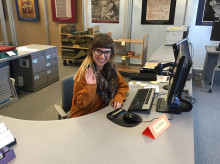
What kind of research can you do in Special Collections? Many people may think that using the materials here is only for “serious” scholars who are conducting historical research into specific topics, but the space is open to everyone (and anyone - that means you!) who wants to get their hands on primary sources. Browse some featured items here and ponder what kinds of research questions one could come up with...
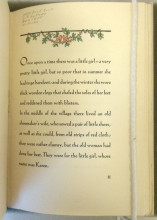
Hans Christian Andersen's “The Red Shoes” tells the story of an orphan girl whose uncontrolled desire for material pleasures and social status leads to her downfall.
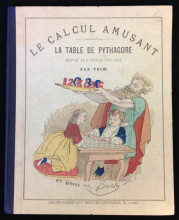
We are excited to report about a recent acquisition for our fast growing collection of Children's Literature. It is the first edition of Le calcul amusant (Paris, ca. 1862), a truly entertaining book designed to teach French kids multiplication through colored illustrations and rhyming couplets.
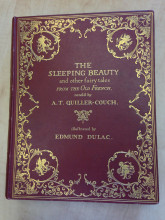
The class, German 386 / Fairy Tales, is devoted primarily to the tales collected by the Brothers Grimm just over 200 years ago, while also exploring the structural elements of fairy tales and the stories’ ongoing influence in contemporary society. Mary Gell brought her class of 32 students to the Special Collections Library in June to give students a sense of the role illustrations have played in the reception and popularization of fairy tales.